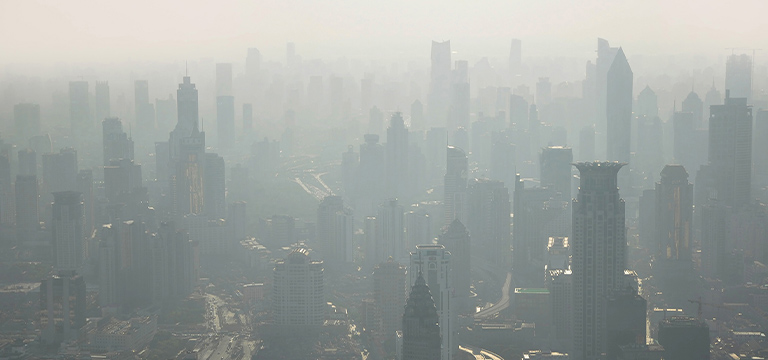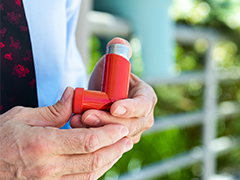How Air Pollution Affects Your Health

Checking the weather is a small ritual in everyone’s daily routine. What are the high and low temperatures for the day? Do I need a jacket? Is there a chance of rain?
Odds are, you’re not checking for air pollution. For many people, that isn’t an issue because the average air quality in the U.S. is generally good or acceptable. But it’s something you should keep on your radar because it changes often and can affect your health.
There are two types of air pollution: ozone and particle. Ozone pollution, also known as smog, is made up of chemicals emitted by things like cars, power plants and factories. Particle pollution comes from tiny bits of dust, dirt, smoke and soot that stay in the air.
The harmful effects of pollution
Breathing in poor air can trigger flare-ups for some at-risk groups. It’s especially harmful for those who are older, children with asthma or cystic fibrosis and adults with lung disease like COPD and emphysema. Anyone with heart disease should also be careful because pollution increases your risk of having a heart attack, too.
How to measure it
Air pollution is measured by the air quality index (AQI). The AQI varies from hour to hour, day to day and season to season. You can check the AQI in your area by looking up weather reports or by visiting the Environmental Protection Agency’s (EPA) dedicated air pollution site. Here’s how to read AQI and what the EPA recommends for each level:
- Green (AQI 0-50) – Good air quality with little to no risk.
- Yellow (AQI 51-100) – Acceptable air quality. There may be risks for those who are sensitive to pollution.
- Orange (AQI 101 to 150) – Those who are susceptible may experience health effects.
- Red (AQI 151-200) – Some members of the general public may experience health effects; members of sensitive groups may experience more serious health effects.
- Purple (AQI 201-300) – Health alert: The risk of health effects is increased for everyone.
- Maroon (AQI 301+) – Health warning of emergency conditions: everyone is more likely to be affected.
What you can do
When the air quality is poor, try to spend less time outside and limit outdoor exercise. Your home acts as a filter and can block as much as a third of outdoor air pollution. Just be sure to make sure the air quality is good inside your home, too. Plan any outdoor activities earlier in the day when air quality is usually better. If you’re concerned about your health and air pollution, talk with your doctor about what to do and how to remedy it.
Source:
http://myfamilyhealthguide.com/2016/10/wildfire-smoke-how-to-protect-yourself/
https://kidshealth.org/CookChildrens/en/parents/ozone-asthma.html



